Living For Centuries? - Atlantis Rising Research Group
Visit Atlantis Rising Research Group at https://www.atlantisrising.com/
One of the oddest claims made in the Old Testament concerns the age of the patriarchs, the Biblical figures who lived before the Flood and, for awhile, those who lived after it. Ten are listed before the Flood, including Adam, who supposedly lived to the age of 930. His son Seth reached the age of 912, Enosh 905, Cainan 910, Mahalel 899, Jarod 962, and Enoch was said to have been taken alive to Heaven at the age of 365. Methusaleh set the record at 969, followed by Lamech who lived until the age of 770, and Noah to 950. After the Flood, lifespans became shorter, but several men were said to live over 200 years, with Shem dying at age 600. Abraham was said to have reached the age of 175, and Moses 120. It seems an odd story just to have been invented, and the decline in lifespans after the Flood is intriguing.
Similar claims are made concerning the kings in Mesopotamia listed in the ancient Sumerian Kings List, a cuneiform stone tablet. Eight kings before the Flood were said to have reigned from 18,600 years to 36,000. Note that this is just how long they supposedly reigned. If each of them succeeded an equally long-lived father, their age might be twice as long. It seems unlikely that people could live that long, even if they didn’t age at all; the odds are that someone will fall prey to accident, disease, war, or assassination long before even 18,600 years. In addition, all the figures are divisible by 60—and the ancient Mesopotamians used a number system based on 60. So the ages are probably exaggerated and rounded off. Like the post-Flood patriarchs in the Bible, the Sumerian kings after the Flood still reigned for hundreds of years, with the life spans gradually declining.
Of course, the Sumerians and their successors influenced the ancient Israelites. Abraham is claimed to have originated in Sumer, or at least lived there for a time. So it is possible that the whole thing is fictional, but, again, it seems like an odd story just to have been made up. It’s as if people had some vitality that gradually drained out of succeeding generations, especially after the Flood, or as if there were some kind of energy present in prehistoric times that gave people greater health and vitality.
Claims of long-lived individuals are present in other cultures but nothing quite like the accounts of these patriarchs and kings. The Hindus, the Buddhists, and the followers of the Falun Gong cult all have legends of saints whose mystical practices and exercises allowed them to live for centuries, as did the Persians and the Romans. Legendary ancient Vietnamese kings were said to have lived for up to 692 years. In India, there was supposedly at one time an elixir called “amrita” that would prevent aging, and the Greek gods were said to owe their immortality to eating ambrosia and drinking a magical nectar. And Adam and Eve had eaten of the Tree of Life in the Garden.
Many cultures have legends of one or more past golden ages. Could there really have been a time when many people lived for centuries? If so, what gave them their vitality? Could there have been some energy present that is now either lacking or not being directed properly? Most ancient cultures believed in a mysterious vital energy that (in at least some traditions) was the ground of all being and that affected, and was affected by, human consciousness. It has been called chi, ki, qui, prana, kundalini, odic force, vril, etheric force, and orgone. Note that such an energy, filling all of space, bears a strong resemblance to the nineteenth-century concept of a “luminiferous ether,” a mysterious substance that carried the vibrations of light just as ordinary matter carries the vibrations of sound. The famous Michaelson-Morley experiment failed to find evidence of a static luminiferous ether, but a dynamic ether would have been nearly impossible to detect. Einstein’s relativity theory requires a “space-time continuum” that can bend; in later life Einstein himself admitted that his theory required a kind of ether; he just gave it a different name. So this energy may be real. Is it possible that in ancient, even prehistoric times, people knew of this energy and how to control it? Could there have been technologies based on this energy, technologies so different from our own that we cannot even recognize the machines left over from that time (like the pyramids)?
-
 27:28
27:28
Ghost Hunting SNAFU.
11 months agoPast Life Recal of my Atlantis Past Life. Atlantians Are the Anunnaki PT2.
16 -
 0:46
0:46
Weird WWII
1 year agoAtlantis Rises
6 -
 0:48
0:48
RISEUPN0W
10 months agoAtlantis SCIENTIFIC Evidence? 😱
1 -
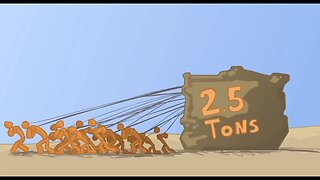 11:50
11:50
Spirit Science
12 years ago $0.01 earnedThe Rise of Atlantis | Spirit Science 12 (Part 1)
82 -
 22:26
22:26
My Past Lives
1 year agoMy First Past Life Recall / Atlantis.
2 -
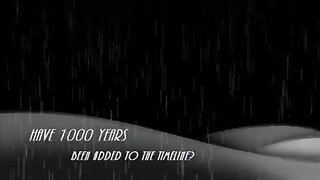 3:26:49
3:26:49
HaloRockCodeX
10 months agoHave 1000 Years Been Added To The Historic Timeline To Hide Tartaria or 19th Century Atlantis?
129 -
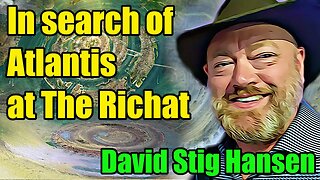 2:29:49
2:29:49
The Amish Inquisition
1 year ago🔴 In Search Of Atlantis : Exploring The Richat Structure with David Stig Hansen
3793 -
 3:05
3:05
SpaceForceGalacticFederation
1 year agoGALACTIC HISTORIES|ATLANTIS
2.04K -
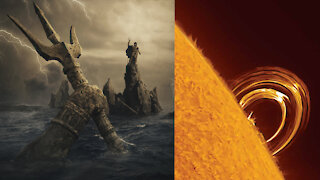 15:35
15:35
V Cipher Community
3 years agoATLANTIS RISING & PARASITE NETWORK | Florida Maquis Everglades Questions ANSWERED | Greek Symbolism
4771 -
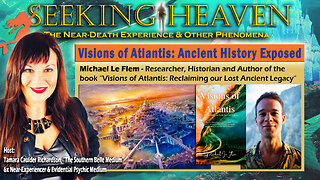 44:31
44:31
Seeking Heaven: The Near-Death Experience and Other Phenomena
1 year ago“Visions of Atlantis: Ancient History Exposed” - Michael Le Flem Historian & Author
319